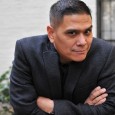2018 was a quite a year, all the way around.
At the close of the year, I tend to take a moment to reflect on what was done and what wasn’t, what stressed me out and what brought me joy and life.
Sometimes I focus too much on the negative. I feel helpless and alone against the onslaught of vicious politics, the failures of organizations and institutions to protect us and promote our rights and health. People living with HIV, Black and Brown people, migrants, poor people, sex workers, LGBTQ people and people who use drugs have been used this year as political foils – played up as sinister or undeserving of basic human rights. As if our presence alone is the cause of the feelings of precarity that undergird life right now.
Our leaders and the media do not look at the social structures that produce this precariousness: we need to demand structural changes.
Structural change can happen. We can ask for, envision and work together towards a more just world. It would require, at the personal level, to critically reflect on how we engage each other.
HIV organizations have to work towards racial justice, social justice, sexual and reproductive health and rights. For the most part, they are focused on testing and treating us – but we need more. It’s ok to ask them to issue statements on the policies that impact us: why aren’t they taking stands when the US government is pushing against immigration, trans identity, sex worker rights, HIV criminalization and policing in communities of color? If your local HIV organization is not taking even the most nominal stands, maybe we need to think about why not? And why do we support them?
My friend Alessandra Nilo and her organization are pushing a campaign: our health is not for-profit. And I think we need something like that here in the US. Pharmaceutical companies pay to support the HIV meetings in the US and yet we never say our health is not for-profit. They should pay for our meetings – they make a lot of money on us: we still want our own space.
As 2018 closes, I hope that you find comfort. I am one of those people who prefers to be alone, yet I currently live around my family so I have a lot of social time scheduled (yes, I am glad I live in a state with legal recreational marijuana).
However you feel this season, know that you are not alone. Whether it’s rage or hurt or loneliness or happy, a lot of others feel the same way in the HIV community.
What about 2019?
My initial thought is to dream bigger: make demands of our organizations and groups that say they represent us. We need accountable leadership and institutions.
We are at an interesting point in HIV in the United States. HIV organizations are largely professionalized, requiring advanced degrees and extensive experience for leadership positions. We see a clear gap in leadership generations, and there is a need to develop new leaders. And this focus is largely on communities that are already marginalized from institutions like education and corporate employment.
For those people who want to build leadership for people living with HIV, I have a few pointers.
- Pay people for their time. This may seem obvious but many organizations do not resource adequately for people’s time and development.
- Listen to the community. If no one shows up (or no one new shows up), then you’re probably doing it wrong. Spend some time with community folks and listen to what people say.
- Make space at the table. Most of the tables we sit at seem full already. Who really needs to be there? Is there room? Are people able to make meaningful contributions?
- Culturally appropriate communication. If people do not understand our language, or experience it as harmful, change it up. It is our responsibility as leaders to communicate with our community. If our jokes aren’t landing or our organizations can’t draw people in, then consult with community. Listen to people whom you might not agree with.
These pointers will help you no matter what constituency you are focused on. Whether it’s young people, heterosexual women and men, people of color, African American gay/bisexual/same gender loving men, people of trans experience, sex workers, people who use drugs, people who have been in prison, everyone needs to get paid for their time, have access to the space and have the capacity to use their voice and be heard in meaningful ways.
For my part, I am stepping down as Chair of the US People Living with HIV Caucus. We will have new elections in 2019 and someone else can step up. Sometimes, we have to move aside in order to make space for others.
I have other issues I want to move forward. There’s been some events I haven’t been able to talk about because of my role in the HIV Caucus. I have just joined UNAIDS Program Coordinating Board. In 2019, I want to shift my focus back to the goals I set out for me.
Happy New Year! Take a moment to reflect on 2018 and move to a more productive 2019, whatever that looks like for you.








Comments
Comments